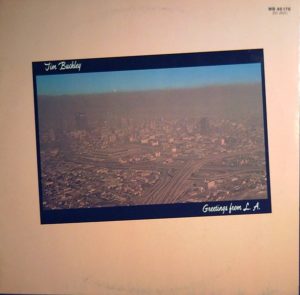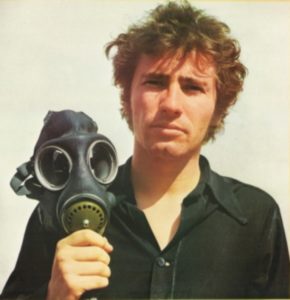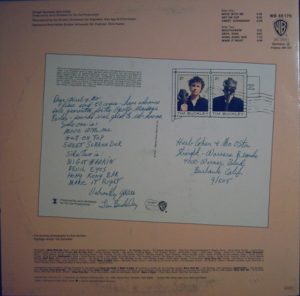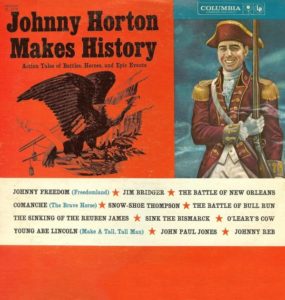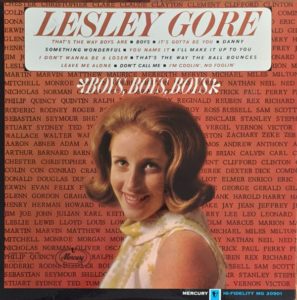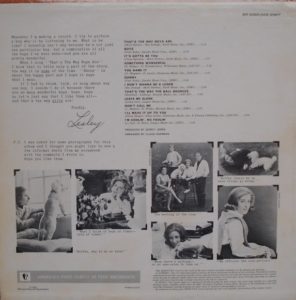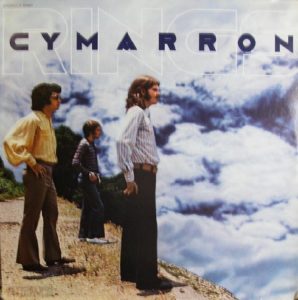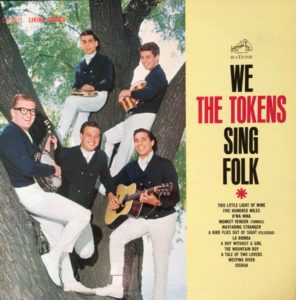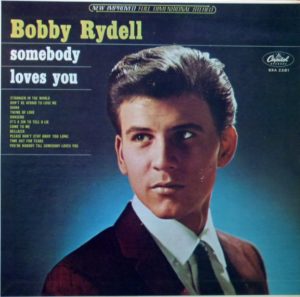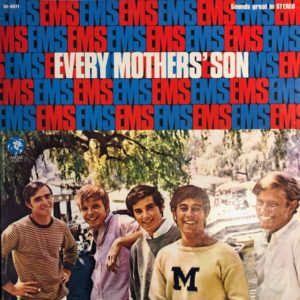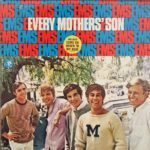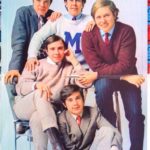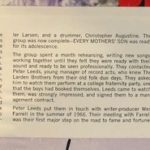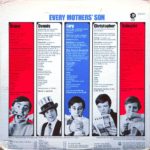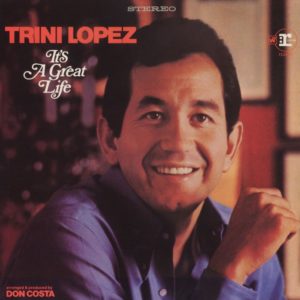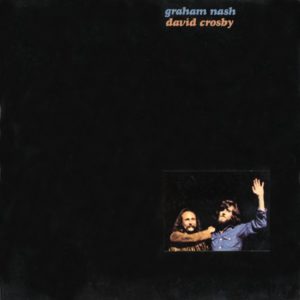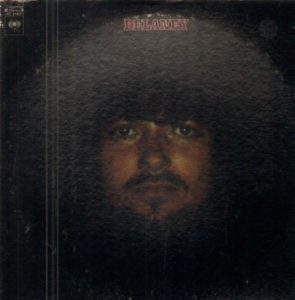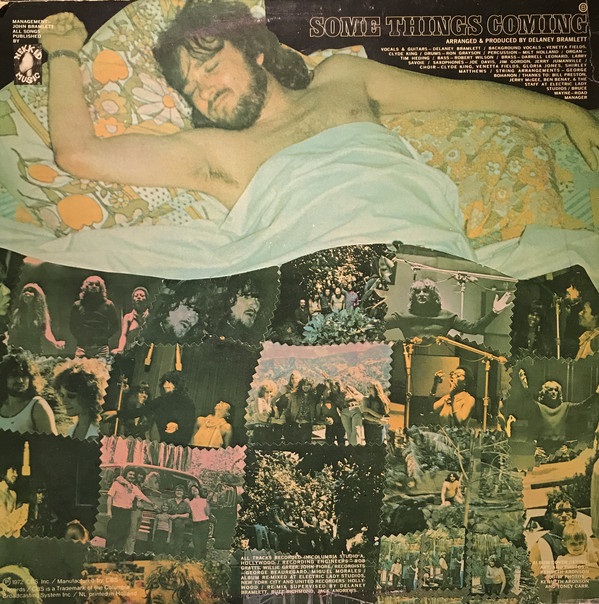There has been much written about Jeff Buckley and there is no shortage of reviews on him.
Forty-four years after his death, Tim Buckley probably remains best known as father of the late Jeff Buckley but to the self-consciously aware music types (sand especially musicians) he is a cause celeb and an act they often throw up in interviews to show they are hip.
Am I one of those?
I don’t know but I will join them in praise. I’m always partial to a voice and Buckley had a wonderful voice that could stimulate both the spine and the brain.
He had a musical palette that was broad and a future that seemed limitless (though probably marginal).
Buckley is the great loss.
Like a Nick Drake but with a wider palette, more taste and a better voice.
He could do anything and probably would have tried anything.
He is primarily a vocalist. Yes, yes he writes most of his material but like Elvis, and Nilsson (who also writes a lot of his own material) it is his voice which is his primary instrument and what he uses to be express the lyrics.
He loves his voice, and I don’t mean in a narcissistic way) but what I mean he loves using it to see if the tone, pitch and accents can impart meaning to the words (or more meaning to the words) that aren’t otherwise noticeable.
Let’s face it, the written word is about expansion … the more you write the clearer and more unambiguous the language (that’s why legal contracts are so long – and even they aren’t bulletproof).
So reducing language has to lead to a misunderstanding in meaning. That’s why “twitter” is such a load of rubbish and prone to misunderstanding and misinterpretation.
In music the need to bring some meaning to three or four verses and a chorus is imparted by the music and the voice.
The music creates the mood and the melody but the voice is what brings the intimate and perhaps emotional force to the words as written.
How the voice tackles the lyrics is all important.
Even if the lyrics are screamed o yelled there is differences in how a person approaches the words.
Buckley, to me, always seemed to be trying to impart the lyric emotionally with his voice.
And there is a certain joy in this as there is in hearing him do that.
Allmusic (Richie Unterberger) says this about him and then compares him to two great acts in relation to his eclecticism, though, oddly, no one is relation to his vocals: “One of the great rock vocalists of the 1960s, Tim Buckley drew from folk, psychedelic rock, and progressive jazz to create a considerable body of adventurous work in his brief lifetime. His multi-octave range was capable of not just astonishing power, but great emotional expressiveness, swooping from sorrowful tenderness to anguished wailing. His restless quest for new territory worked against him commercially: By the time his fans had hooked into his latest album, he was onto something else entirely, both live and in the studio. In this sense he recalled artists such as Miles Davis and David Bowie, who were so eager to look forward and change that they confused and even angered listeners who wanted more stylistic consistency. However, his eclecticism has also ensured a durable fascination with his work that has engendered a growing posthumous cult for his music, often with listeners who were too young (or not around) to appreciate his music while he was active”. https://www.allmusic.com/artist/tim-buckley-mn0000595101/biography
Buckley I compare to Frank Sinatra, Elvis Presley, Harry Nilsson, Bobby Darin and others who used their voices as instruments of communication.
Where you breathe or pause in a word or sentence is as important as the word or sentence itself.
And where that comes from is in your past.
Buckley never had a great (straight) rock voice but he had all the “voices” of the musics that came before, and, perhaps made up rock.
Trad pop, folk, country, rhythm and blues, old timey, soul.
And that made him great, much like a counter culture Bobby Darin.
A lot of people won’t like that comparison. Darin’s cultural hipness stock is low and even the film with Kevin Spacey (“Beyond the Sea” – 2004) didn’t help … and has perhaps made it lower still (now).
By way of bio: “Tim Buckley was born in Washington, D.C. on Valentine's Day (1947), to Elaine (née Scalia), an Italian American, and Timothy Charles Buckley Jr., a highly decorated World War II veteran who was the son of Irish immigrants from Cork. He spent his early childhood in Amsterdam, New York, an industrial city approximately 40 miles northwest of Albany; at five years old he began listening to his mother's progressive jazz recordings, particularly Miles Davis … Buckley's musical life began in earnest after his family moved to Bell Gardens in southern California in 1956. His grandmother introduced him to the work of Bessie Smith and Billie Holiday, his mother to Frank Sinatra and Judy Garland and his father to the country music of Hank Williams and Johnny Cash. When the folk music revolution came around in the early 1960s, Buckley taught himself the banjo at age 13, and with several friends formed a folk group inspired by the Kingston Trio that played local high school events”.
https://en.wikipedia.org/wiki/Tim_Buckley
“Buckley emerged from the same ’60s Orange County, CA, folk scene that spawned Jackson Browne and the Nitty Gritty Dirt Band. Mothers of Invention drummer Jimmy Carl Black introduced Buckley and a couple of musicians Buckley was playing with to the Mothers’ manager, Herbie Cohen. Although Cohen may have first been interested in Buckley as a songwriter, he realized after hearing some demos that Buckley was also a diamond in the rough as a singer. Cohen became Buckley’s manager, and helped the singer get a deal with Elektra … Before Buckley had reached his 20th birthday, he’d released his debut album”. http://www.timbuckley.com/biography/
Tim Buckley drew from folk, psychedelic rock, singer songwriter, Latin, and progressive jazz to create a considerable body of work – nine albums in eight years.
Always a little reckless musically (and in his personal life it seems (he died of a heroin overdose at age 28 in 1975)) this willing to take chances (musically) has to be admired, even if not always successful. There is nothing worse than an act who never takes chances. I should say, as an aside, that single minded devotion to a sound regardless of changing times has to be admired also, but that is something altogether different to the plodders..
This album is his Buckley's third last and generally, it seems, to be less regarded than his earlier works.
The usual complaint is, it’s a sell-out (a compromise for radio airplay) … I’m not sure what radio (at the time) this would be played on (apart from the then obscure FM). There is a lot of sex in the lyric and the vocal (though the liner notes and art work seem to suggest concerns about the (then) famous L.A. smog) is too adventurous. This is white boy funk without the innuendo or black fun, without the sexual playfulness of early rock n roll, without the philosophical ruminations of The Doors. It’s in your face matter of fact sex sung, with nods to all sorts of musical styles, though primarily funk.
Or as this perceptive blogger says: “I have never listened to Tim Buckley. I know he is Jeff Buckley’s dad and I assumed he was a folk singer. Listening to Greetings from L.A. the last thing I thought of was folk. This guy sounds like a hipster Elvis or an American version of Serge Gainsbourg … So what the hell is this? It is a bit artsy, mainly funky, a bit jazzy, a bit deviant (maybe more than a bit deviant) and a bit silly (in a good way)”. https://catchgroove.com/2017/02/15/tim-buckley-greetings-from-l-a/
It sounds like the blogger is describing later Jim Morrison. And, it is interesting that this album could almost be a sequel companion to The Doors "Morrison Hotel" (1970) in spirit.
Most importantly, Buckley (naturally enough for him) sings his way (multi octave style) through this funk rather than shouting or talking it. There is never a doubt that he is white.
And, that is not a problem. He knew what he liked.
“Greetings from L.A.” was recorded in June of 1972 and released in October of the same year. It probably confused most of his old audience, didn’t sell well nationally, and was another flop for Buckley.
Tracks (best in italics)
Side One
- Move With Me – (Tim Buckley, Jerry Goldstein) – This is a great funky workout. It's missing a hook but it is immensely entertaining.
- Get on Top – a extended funky work out. This is hard to dislike.
- Sweet Surrender – a gentler (?) sexual make out song.
Side Two
- Nighthawkin' – an excellent pumpin' funk with social commentary overtones. Much like what War were doing though less strident.
- Devil Eyes – some street talking, errr singing with some wonderful keyboards.
- Hong Kong Bar – (Tim Buckley, Joe Falsia) – Magnificently moody with a vague (very remote) feel of Sandy Bull.
- Make It Right – (Tim Buckley, Larry Beckett, Joe Falsia, Jerry Goldstein) – With its strings it's like the closing theme to a gritty 1970s urban drama. And, that's a good thing.
And …
This is a wonderful piece of white funk which holds its own against a lot of black funk. Underappreciated. Excellent. A definite contender for soundtrack inclusion on any future Quentin Tarantino L.A. 70s crime action-flic. … I'm keeping it.
Chart Action
Nothing nowhere
Sounds
Move With Me
https://www.youtube.com/watch?v=lsB9qjcjzeE
Get on Top
https://www.youtube.com/watch?v=SmjzxODwGcM
Sweet Surrender
https://www.youtube.com/watch?v=u-qNBxXjbI4
Nighthawkin'
mp3 attached
Devil Eyes
https://www.youtube.com/watch?v=6haM9c1fjTw
Hong Kong Bar
https://www.youtube.com/watch?v=ZN4rQkfs2Zo
Make It Right
https://www.youtube.com/watch?v=1NR-hmFrR20
Others
On The Monkees (1968)
https://www.youtube.com/watch?v=vMTEtDBHGY4
he was already being called “legendary” in 1974
https://www.youtube.com/watch?v=LtU-9EMSYu0
Review
https://en.wikipedia.org/wiki/Greetings_from_L.A.
https://www.allmusic.com/album/greetings-from-la-mw0000203677
http://www.gigslutz.co.uk/record-tim-buckley-greetings-l-1972/
https://www.robertchristgau.com/get_album.php?id=6497
https://catchgroove.com/2017/02/15/tim-buckley-greetings-from-l-a/
https://davidvriezedaniels.wordpress.com/2016/02/11/731-greetings-from-l-a-tim-buckley/
Bio
https://en.wikipedia.org/wiki/Tim_Buckley\
https://www.allmusic.com/artist/tim-buckley-mn0000595101/biography
obituary
https://www.rollingstone.com/music/music-news/tim-buckley-dead-at-28-94675/
Music biography
https://thevinylfactory.com/features/introduction-tim-buckley-10-records/
Website
Trivia
- Personnel: Tim Buckley – vocals, 12-string guitar, Joe Falsia – guitar, string arrangements (3,7), Kevin Kelly – piano (1), organ (2,5), Paul Ross Novros – saxophone (1), Eugene E. Siegel – saxophone (1), William Kurasch – violin (3,7), Louis Kievman – violin (3,7), Robert Konrad – violin (3,7), Ralph Schaffer – viola (3,7), Harry Hyams – viola (3,7), Jesse Ehrlich – cello (3,7), Chuck Rainey – bass, Reinhold Press – bass (7), Ed Greene – drums,Carter C.C. Collins – congas (2,4), "King" Errison Johnson – congas (3,5), Clydie King – backing vocals (1,4), Venetta Fields – backing vocals (1,4), Lorna Maxine Willard – backing vocals (1,4), Jerry Goldstein – percussion, arranger, producer.
RIP: Damien Lovelock 1954 – 2019

